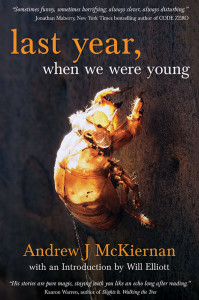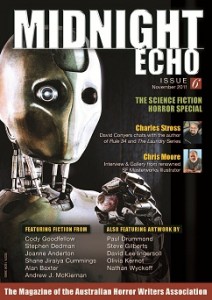 Suspended in Dusk
Suspended in Dusk
Edited by Simon Dewar
Books of the Dead Press (http://www.booksofthedeadpress.com/)
E-book: ISBN 978-1-3117783-8-3
Suspended in Dusk is the latest anthology from Books of the Dead Press, and the first for Australian editor Simon Dewar. Featuring 19 tales from a mix of new and established authors, and an Introduction from Bram Stoker Award winning Jack Ketchum, Suspended in Dusk hits its mark more often than not.
It’s always nice to have a note or introduction from the editor at the beginning of an anthology; a place where they lay out their thoughts and goals, their targets. Simon Dewar does this quite well. He tells us that the stories are all about change, and the time between those changes, much as dusk is “the time between the light and the dark”. Some of these changes are metaphorical, while others take the theme more literally.
To the stories! I might not mention all of them, only the ones that really stood out for me. This isn’t to say there are any bad stories in the anthology; that certainly is not the case. Any reader of horror will find plenty here to enjoy, and those tales that weren’t quite for me might be exactly what another reader is looking for.
First up is “Shadows of the Lonely Dead” by Alan Baxter. A beautifully written and emotional tale about a hospice worker with a gift for easing the suffering of the elderly as they slip into death, and the greater ramifications that has on her life outside the hospice.
Anna Reith’s “Taming the Stars” takes us to the dark and gritty side of Paris, with a story of a drug deal that goes horribly (and gruesomely) wrong.
“At Dusk They Come” by Armand Rosamilia invites us to a small town at sundown for a well written take on the old tale of ‘doing deals’ with the nefarious.
Rayne Hall brings us “Burning”, a Southern Gothic flavoured tale with a conspicuous absence of the supernatural, but all the more horrifying for it. As in real life, “Burning” shows us that people — especially those isolated by the ignorance of their own world views — are much worse than any monsters we can imagine.
Chris Limb’s “Ministry of Outrage” reveals the truth behind corporate and governmental conspiracies in a tale that is all too scary for its plausibility.
S.G.Larner give us “Shades of Memory”, wherein religion reigns in post-apocalyptic Queensland and the locals of a small town, who want no part of it, have some ghostly superstitions of their own.
“Outside In”, a strange Quantumpunk-Noir by Brett Rex Bruton, is one of the most interesting pieces in the anthology. The story begins: “I swing my feet from beneath the warmth of the covers and down on the cold, hard copy of the opening paragraph.” I stared at that — “hard copy of the opening paragraph” — and wondered if it was some kind of strange typo, an editor comment inserted by accident. But no, it isn’t! It is slips like this, in the walls of reality between story and reader, that really made this story stand out for me. Very original.
“Would To God That We Were There” is the creepy science fiction story I’ve been trying to write for years. I even have 10yr old opening paragraphs that are near identical. I never knew where to take the idea, but it seems that Tom Dullemond did, and he does a wonderful job of it.
The anthology finishes on a high-note too, with Angela Slatter’s “The Way Of All Flesh”. I love a post-apocalyptic story that doesn’t focus on the actual apocalypse, but instead on the people who are trying to get on with their lives. “The Way Of All Flesh” accomplishes this brilliantly, subtly, and in the end, very disturbingly. It’s a fitting end to a collection of so many fine stories.
As I said earlier, I haven’t mentioned every story; only those that really shined for me. A few of the other stories just weren’t too my taste, or I found personally a little predictable. Be that as it may, there isn’t a badly written story here. In every case the prose is well constructed and, in a few stories, quite beautiful.
Overall, Suspended In Dusk is a very good collection. I think there’s something for everyone’s taste — vampires, werewolves, ghosts, zombies and plenty of nefarious humans — and I’m sure others will find things in certain stories that I didn’t. And the mix of authors, old and new, means you’re certain to be introduced to someone you’ve never heard of before: which I think is the most exciting part about reading any horror anthology.
 Last Year, When We Were Young
Last Year, When We Were Young

 Ticonderoga Publications
Ticonderoga Publications